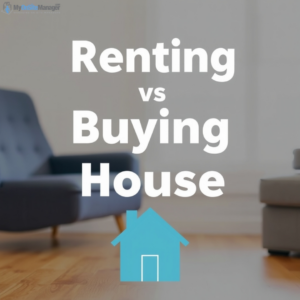In 2025, the decision between renting and buying a home has become increasingly complex due to fluctuating mortgage rates, rising home prices, and evolving market dynamics. Recent analyses suggest that renting may offer financial advantages over purchasing a property in the current economic climate.
Rising Mortgage Rates and Home Prices
Mortgage rates have experienced significant increases, with the average 30-year fixed rate reaching approximately 6.91% as of late 2024. This rise in interest rates has led to higher monthly mortgage payments, making homeownership less affordable for many. Concurrently, home prices have continued to climb, further exacerbating affordability challenges. For instance, in Atlanta, the median listing price for a home was $410,000, resulting in an estimated monthly mortgage payment of about $2,162, excluding taxes and insurance. In contrast, the median monthly rent for a comparable property was $1,583, offering a potential savings of $579 per month for renters. (Investopedia)
Stabilizing and Declining Rent Prices
Contrary to the upward trend in homeownership costs, rental prices have shown signs of stabilization and even decline in certain markets. As of October 2024, the median rent for 0-2 bedroom properties decreased for the 15th consecutive month, standing at $1,720, which is $40 lower than its peak in August 2022. This trend is expected to continue into 2025, as an influx of new multifamily housing units—920,000 currently under construction—enters the market, increasing rental inventory and applying downward pressure on rents. (Investopedia)
Financial Flexibility and Lower Upfront Costs
Renting offers notable financial flexibility, particularly concerning upfront costs. Purchasing a home typically requires a substantial down payment, closing costs, and funds for inspections and other fees, which can significantly deplete personal savings. In contrast, renting generally necessitates a security deposit and the first month’s rent, allowing individuals to maintain greater liquidity and allocate resources to other investments or financial priorities. (Here)
Market Volatility and Investment Considerations
The real estate market’s volatility adds another layer of complexity to the buy-versus-rent decision. High mortgage rates and escalating home prices have made homeownership less accessible, leading many potential buyers to remain in the rental market. Real estate investment trusts and rental property investors are poised to benefit from this trend, as the demand for rental properties is expected to rise. Analysts predict that the gap between monthly payments for renting versus buying could favor renting by as much as 30%. (Associated Press)
Conclusion
While homeownership has traditionally been viewed as a pathway to building wealth, current economic conditions in 2025 suggest that renting may be a more financially prudent choice for many individuals. The combination of high mortgage rates, rising home prices, and stabilizing or declining rents provides a compelling case for renting as a cost-effective and flexible housing option in today’s market.
Source: Why Renting Might Be a Smarter Financial Move Than Buying in 2025

